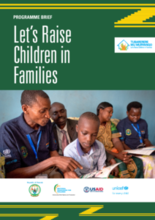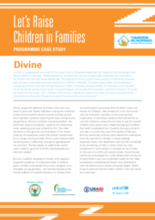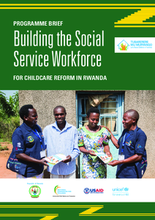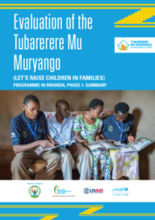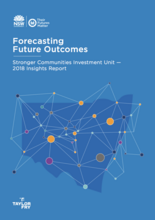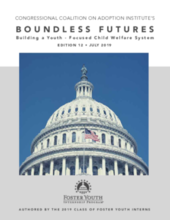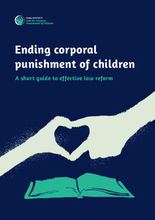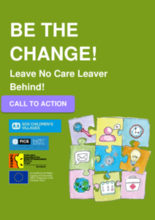Displaying 341 - 350 of 1025
This programme brief is part of a package of materials documenting successes and lessons learnt from implementation of the Tubarerere Mu Muryango (TMM) child care reform programme between 2012 and 2018.
This package of materials documents successes and lessons learnt from implementation of the programme of care reform and family strengthening - called Tubarerere Mu Muryango (TMM), translated to Let’s Raise Children in Families - in Rwanda between 2012 and 2018.
This case study profiles the reintegration experiences of one child who has participated in the Tubarerere Mu Muryango (Let’s Raise Children in Families - TMM) programme in Rwanda.
In collaboration with UNICEF, the government of Rwanda has established the Tubarerere Mu Muryango (TMM - Let’s Raise Children in Families) programme to ensure that all children living in institutional care in Rwanda are reunited with their families or placed in suitable forms of family-based alternative care. This report presents a summary of the findings of an evaluation of Phase 1 of this programme.
This report, which was authored by Taylor Fry with support from Their Futures Matter (TFM) - a landmark reform of the Government of New South Wales (NSW), Australia to deliver improved outcomes for vulnerable children, young people and their families - and stakeholder agencies, presents key results and insights from the TFM Investment Model, an actuarial model of future outcomes and costs of providing key government services to children and young people in NSW.
This report presents policy recommendations to improve the U.S. child welfare system, made by young adult interns who participated in the Foster Youth Internship Program® (FYI), "a highly esteemed congressional internship for young adults who have spent their formative years in U.S. foster care."
With this guide, the Global Initiative to End All Corporal Punishment of Children aims to support governments and civil society working to end violence against children through effective prohibition of corporal punishment.
This article describes David Tobis's keynote address at the Family Inclusion Network South East Queensland’s Global Day of Parents Forum and the story of the parents and allies who changed the child protection system in New York City.
The content of this Call to Action comes from what was heard from young people with care experience as well as from the professionals working with them. It outlines three primary actions to realize careleavers' rights in the law and in practice and to allocate adequate funds for realizing these rights.

